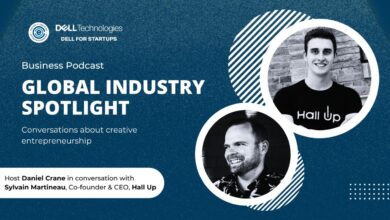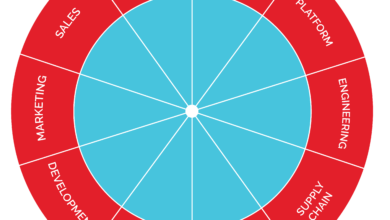
It struck me over the recent holidays that founders and entrepreneurs have far more they might learn from Media than is readily apparent.
Among startups, investors, mentors, advisors, and incubators, such as Collective, are queried again and again on the question of revenue and what founders and teams should expect (or the expectations they should set) regarding that coveted of cash flows.
Troubling is that many investors and advisors guide founders to believe that revenue should be flowing; expecting even, from their perspective, that it might be steady, recurring, increasing, or (perish the thought) predictable.
In Media, we have what’s called modulation.
It’s a common sight in the Radio business and applicable in Audio; we talk about it even in voice training. Modulation refers to the pattern of the waves transmitting in frequency, in amplitude, or digitally.
You’re likely more familiar with what the pattern looks like because we’ve all been on or seen on TV shows sensationalizing the medical industry: an EKG
Picture this:

With that in mind, consider the word “startup” (<- that word in particular). Such a venture isn’t just a typical new business.
If it was typical, we’d just call it a new business.
I’m a fan of Steve Blank‘s characterization of startup: a new venture in search of a business model.
What’s the difference between a new business and a startup? Let’s use some examples:
- You open a restaurant.
- You launch a ridesharing app
- You launch an accounting suite online
- You build a machine learning AI for pets
Good set of examples? I want to be broad here and try to cover various types of new ventures.
- You open a restaurant.
- The model for this is known.
- Costs and revenues are well established and predictable.
- Many people and resources can tell you how to do this and what it really takes.
- You launch a ridesharing app
- The model for this is known.
- Costs and revenues are not well established and predicatable but…
- Many people and resources can tell you how to do this and what it really takes.
- You launch an accounting suite online
- The model for this is likely known unless you’re changing it
- Costs and revenues are well established and predictable
- Many people and resources can tell you how to do this and what it takes; again though, unless you’re doing something radically different
- You build a machine learning AI for pets
- The model for this is NOT known
- Costs and revenues are not established nor predictable.
- Few can help
Now the first is clearly just a “new business,” our restaurant.
I love the second example because it is something still so fresh and innovative to the world that people really want to call such things, “startups,” but let’s be honest, a new ridesharing app wouldn’t be a startup. It’s established now how that works. The model is known.
The next business is another great example because there are hundreds of accounting apps online (truly, it can be a bit frustrating to find a great accounting / bookkeeping app given how many there are and how they’re all essentially the same). Despite being online, they’re new businesses. But this type of business model is a good example of where something new COULD in fact be a “startup.”
Some time ago, a radical approach came along and introduced a completely new way of accounting: Mint. Automation.
Boom, startup!
Now however, just build a clone of Mint and not-startup.
Lastly, an artificially intelligent goldfish? Definitely “startup.”
Is the business model known or not?
So, what is the realistic growth of revenue for a “startup”?

Be clear now, as a “startup,” we have NO IDEA how to consistently, competitively, and sustainably make money! If we did, we’d have the model and it’d no longer be a startup.
The realistic expectation of revenue in a startup looks like this. Until you know otherwise.







Oh..and there are multiple frequencies running at the same time!
Great point! I hadn’t thought of it that way but 100%
It’s PAULyphonic!